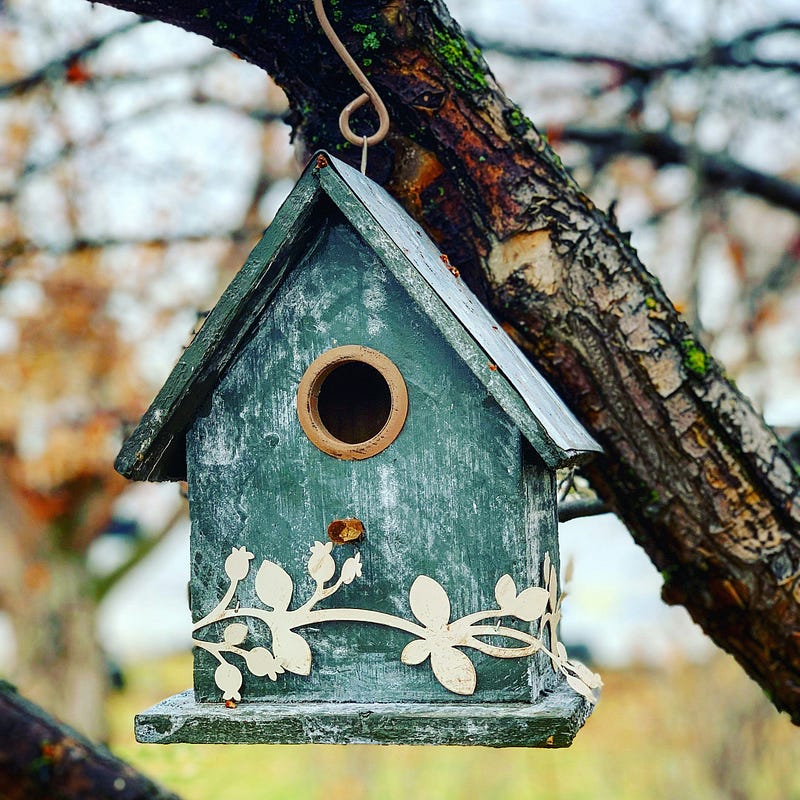What Does Home Mean to You? Exploring the Essence of Home
Written on
Understanding the Concept of Home
As I embark on the task of packing, selling, and storing belongings for our upcoming journey, I’ve found myself reflecting on the nature of home. I used to believe I had minimal clutter, but as I sift through my things, I wonder if I'm truly packing up my home or merely my possessions. This contemplation has led me to question what "home" really signifies for me.
For 21 years, I resided in a small flat on the top floor of a converted house. It wasn't until recently that I recognized how transient that living situation felt, largely influenced by my mother’s constant desire to relocate. Now, I ponder why we never moved.
How many individuals remain in places they dislike simply because they label it as home?
What Does "Home" Mean to You?
Is home defined by your current residence or by where you once lived? Does your sense of home shape your identity? According to Susan Clayton, an environmental psychologist at the College of Wooster, many people intertwine their sense of self with the notion of home.
But does the home you relate to even exist anymore? I remember an Irish family living beneath me in my childhood home. I was bewildered when they expressed feelings of going "home," as I perceived them to already be there. Their daughter shared that they considered Ireland their true home, despite never having visited.
They often compared their current surroundings to an idealized version of home, overlooking the reasons for their departure.
A friend of mine frequently traveled between the UK and Australia. Though he had emigrated and established a life in Australia, he longed for the UK, which he considered home. Upon returning to the UK, he missed Australia instead. He recounted a story about an Australian friend’s mother returning to the UK after 25 years in Melbourne. When asked why she was coming back, she responded, “I never really settled.”
The concept of home can easily become romanticized, much like memories of a past relationship. If you continually measure your current surroundings against an idealized past, dissatisfaction often follows.
Is home merely where you set your hat, as an old song suggests, or is it more closely tied to your origins? While I don’t long for my childhood home, I genuinely appreciate living by the beach, and I find excitement in the idea of change.
Experiencing Home in Different Contexts
If you’ve ever experienced a burglary, you may feel that your sense of home has been violated, making it hard to view it as home again. However, similar to people who claim that a day doesn't feel like a birthday or Christmas, the essence of home is not dictated by external circumstances. Your emotional connection to home emanates from within.
The Essence of Home
Home is not merely a physical location; rather, it is embodied within you. The term "home" has roots in the Old Norse word "heim," which signifies not just a place but a state of being.
Consider this theory: when you encounter a soulmate and feel a sense of belonging, is it because of them or because you’re showing up as your best self? In those moments, free from self-judgment, you radiate positivity and love.
This feeling of home stems from your inner peace, which is always accessible if you can shed layers of anxious thoughts.
What does the idea of home symbolize for you? Is it a calming space filled with cherished memories? Research in this area explores whether home is a place, a feeling, or an active engagement with the world around us.
Many clients express that traveling brings them peace, mistakenly attributing this feeling to the new location. They fail to recognize that their sense of ease arises from releasing anxious thoughts. Remember, the physical space you inhabit should not embody your worries.
The Emotional Connection to Home
You might believe that your memories are tied to your home. For instance, you could envision a loved one in their favorite chair, and fear that moving will erase those memories. However, just like during a holiday, the emotional experience comes from within you, not from the space itself.
A close friend of mine held onto her parent's house for a year after her father's passing, using the excuse of sorting through belongings. In reality, she simply wanted to preserve her memories.
Yet, consider how a particular song can transport you back to a specific moment in time. The memory resides within you, not in the melody itself—just as your feelings about home do.
Final Thoughts
Will I feel a sense of loss for not having a home to claim as my own? Perhaps. Or maybe I will eventually embrace the freedom that comes with change, as thoughts are inherently transient.
I’ve owned a home for many years, or more accurately, the bank owned most of it. Over the last decade, I’ve rented, and I’ve learned that home transcends mere walls.
As many who have faced homelessness will attest, security is not synonymous with home. Both concepts are internal experiences, not reliant on external factors.
By releasing outdated beliefs about your identity, you’ll realize that you are the source of your own home. You are home.
Chapter 1: The Nature of Home

Chapter 2: Exploring Personal Connections to Home
The first video titled "What Does Home Mean to You? | 0-100" delves into the personal interpretations of home, showcasing various perspectives that highlight its emotional significance.
The second video, "What does home mean to you?" further explores the question, featuring diverse voices that share their unique experiences and definitions of home.